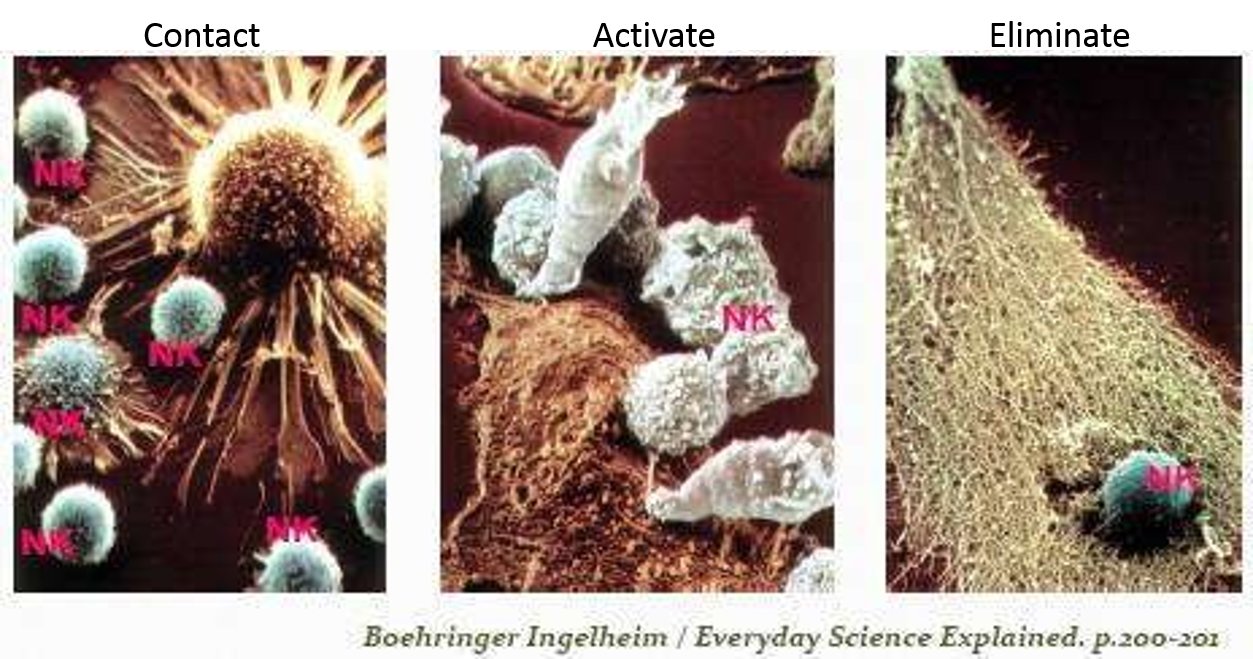Natural killer cell
An innate effecter cells of immune system limits viremia and tumor burden
Natural killer cell, also called NK cell, is a cell with large particles in the cytoplasm. NK cell is developed from bone marrow lymphoid stem cells, and its differentiation and development depend on bone marrow or thymus microenvironment, mainly distributed in peripheral blood and spleen, and a small amount in lymph nodes and other tissues. It is named because of its non-specific cytotoxicity. Without the receptors of T cells and B cells, there will be no genetic recombination of the recipient. But it still has some special receptors called "Killer cell immunoglobulin-like receptors (KIR)". KIR are a family of highly polymorphic activating and inhibitory receptors that serve as key regulators of NK cell function. NK cell is accounted about 5~10% of all lymphocytes, but NK cell can eliminate many kinds of pathogens and many kinds of tumor cells. NK cell contact with pathogens or tumor cells directly and kill the cells by rupturing the cell membrane. NK cell secrete perforin and tumor necrosis factor to destroy target cells. NK cell is generally sorting from peripheral blood mononuclear cell (PBMC) by surface markers: CD3-CD56+, CD3- CD16+, or CD3-CD8+.

NK cell presence in the primary tumor site was not associated with the patients & apos; sex (chi-square, p = 0.462), tumor size (Mann-Whintey U test, p = 0.377), tumor location (chi-square, p = 0.262), tumor differentiation (chi-square, p = 0.556), wall invasion (chi-square, p = 0.999), the presence of metastatic lymph nodes (chi-square, p = 0.720), or Dukes & apos ; stage (chi-square, p = 0.992). However, a negative association between the presence of NK cells at the primary tumor site with the patients & apos; age was noticed (Mann-Whitney U test, p = 0.031). [BMC Gastroenterology 2004, 4:20]
NK cell culture and cryopreservation
Possess NK culture technology with cryopreserved PBMC
NK cells can be stored frozen or refrigerated for 3 days
After thawing, CD 56+ cells still retains 80%
1:10 cytotoxicity (killing ability) is maintained at 90%
Intensive infusion (1~2 days) for a single effective dose (over 6-10 billion)
Current clinical experience, the maximum effective safe dose can reach 150 billion


.png)